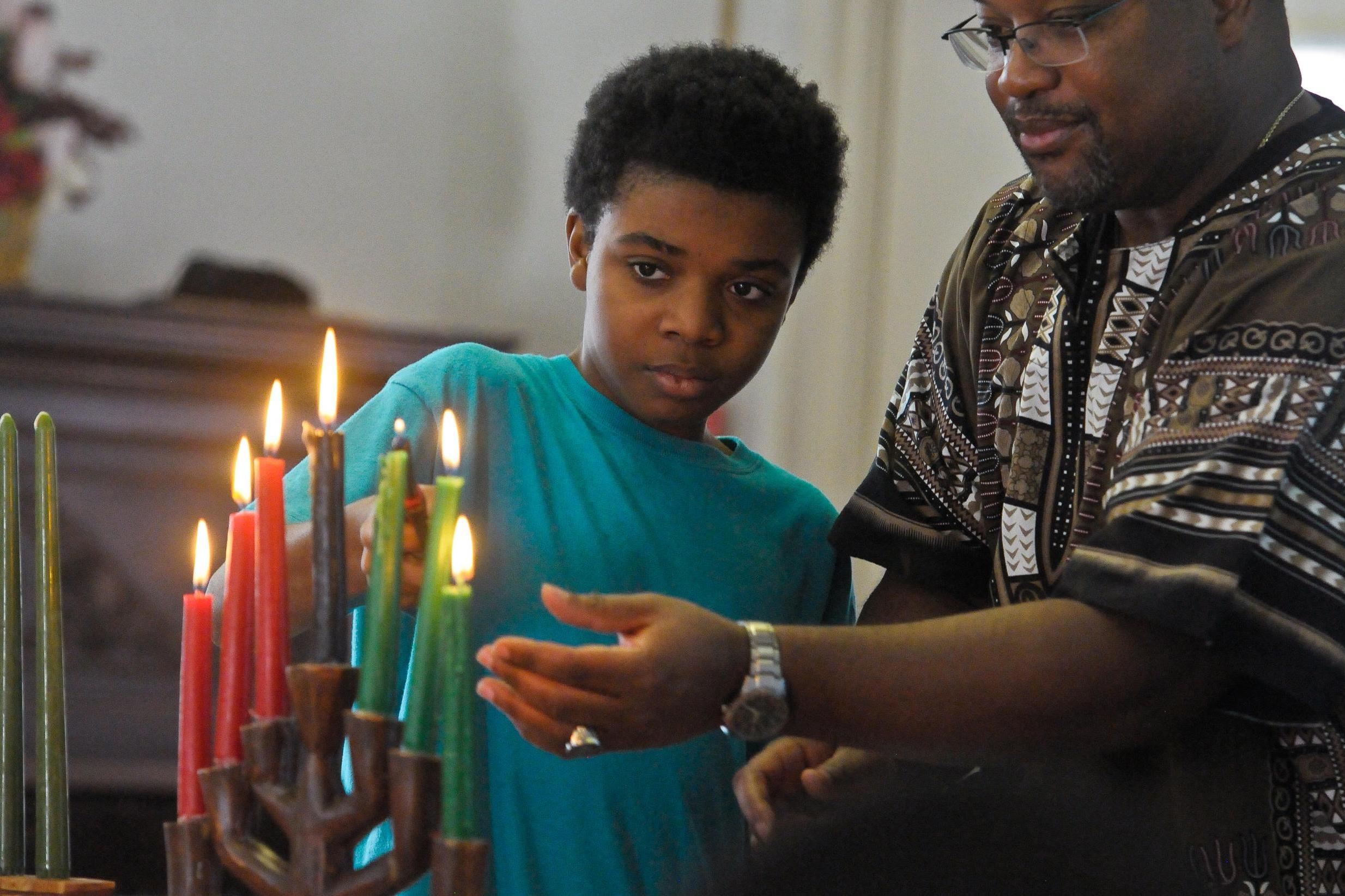Kwanzaa 2018: What is it and how is it celebrated?
The annual celebration of African heritage lasts seven days

Every year on 26 December, the annual commemoration of African-American culture that is Kwanzaa begins.
Observed predominantly in the US and across nations of the African diaspora in the Americas, people celebrating Kwanzaa honour their African ancestry by exchanging presents and enjoying a large feast with loved ones.
While Kwanzaa occurs around the time of other festive holidays such as Christmas and Hanukkah, it isn’t associated with a religion.
The festival was founded by Maulana Karenga, an author and activist who was involved with the Black Power movement in the 1960s and 1970s.
It was first celebrated just over a half a century ago, in an effort to instil racial pride and unity within the black community.
So how was Kwanzaa first created, what does the name mean and how is it celebrated? Here’s everything you need to know:
How did it begin?
Kwanzaa was created by Karenga in 1966.
Karenga was an activist during the 1960s, co-founding the black nationalist US Organisation in 1965.
Kwanzaa is a celebration of community, family and culture that was established as a way for African-Americans to reconnect with their roots and heritage.
Karenga explained the significance of the festival while at an event at the Memorial Art Gallery at the University of Rochester in 2013, during which he said: “the celebration of Kwanzaa is about embracing ethical principles and values… so the goodness of the world can be shared and enjoyed by us and everyone.”
Kwanzaa has been compared to Juneteenth, an American holiday that occurs on 19 June to commemorate the abolition of slavery in the US state of Texas in 1865.
When is it?
Kwanzaa occurs over the same seven days every year, from 26 December until 1 January.
It lasts seven days in order to honour the core seven principles of the festival, as outlined by Karenga.
These seven principles are called Nguzo Saba, otherwise known as the “seven principles of African Heritage”.
These principles are Umoja (unity), Kujichagulia (self-determination), Ujima (collective work and responsibility), Ujamaa (co-operative economics), Nia (purpose), Kuuma (creativity) and Imani (faith).
What does Kwanzaa mean?
Pronounced “kwahn-zuh”, the term Kwanzaa comes from the Swahili phrase “matunda ya Kwanza”, meaning “first fruits of the harvest” or “first fruits”.
First fruits festivals are celebrated in December and January in Southern Africa, to coincide with the southern solstice.
Karenga purposely chose for Kwanzaa to have seven letters in its name in order to align with the holiday’s seven principles.
How is it celebrated?
Families that celebrate Kwanzaa do so in different ways. However, festivities usually involve dancing, singing, gifts and a large feast.
Those observing the festival will often decorate their houses with fruits, a black, red and green flag, and a Kinara - a candle holder that holds seven candles.
Three red candles are placed on the left of the Kinara, three green candles are placed on the right and a black candle is placed in the middle.
In addition to the Kinara, there are several symbolic items associated with Kwanzaa, including Muhindi (corn) and a Kikombe cha Umoja (a unity cup). All of these items are placed on a Mkeka (mat).
The festival ends with a feast, or Karamu, on the last day.
Those celebrating Kwanzaa will greet each other with the phrase "Habari Gani?" during the seven-day period, which means "How are you?" in Swahili.
In 2009, author of Kwanzaa: Black Power and the Making of the African-American Holiday Tradition Keith Mayes told the Associated Press that he believes 500,000 to two million Americans celebrate Kwanzaa.
However, a 2012 study conducted Public Policy Polling found that four per cent of participants said that they celebrate Kwanzaa, which therefore means that more than 13 million people in the US may observe the festival.
Subscribe to Independent Premium to bookmark this article
Want to bookmark your favourite articles and stories to read or reference later? Start your Independent Premium subscription today.

Join our commenting forum
Join thought-provoking conversations, follow other Independent readers and see their replies